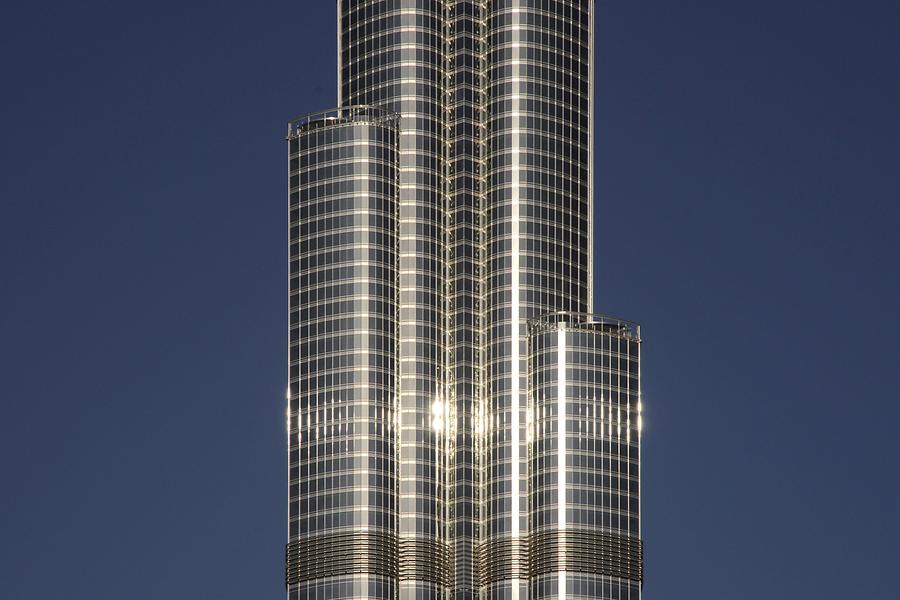Burj Chalifa#

Burj Chalifa, January 2011, © Gerhard Huber, under CC BY-NC 4.0 +Edu
132,000 m² of aluminum and 103,000 m² of glass let the facade of Burj Khalifa shine silvery. To protect against rain, too, more than 2000 km of seals were laid. Today, the average water consumption of the tower is at 1 million liters per day, as much as for a small town. In addition, at peak times there is a demand of electric energy demand of 50 MW. No wonder - the effective area of the tower with its 163 floors amounts to more than 4 km². After a building time of only 6 years the project of the century was finally opened in 2010. The reputed construction costs were accounted for US $ 1.5 billion. The Burj Khalifa houses a hotel designed by Armani, numerous offices and more than 1,000 apartments. When fully operational up to 13,000 people will live and work here. The top five floors are at the disposal of the chief executive of the local prime contractor Emaar as his personal office and as mosque. However, it is possible to become seasick at these altitudes, because in stormy weather the tower sways to and fro up to one and a half meters. Up there, it is also about 6-10 degrees cooler than at the bottom of the tower.
132.000 m² Aluminium und 103.000 m² Glas lassen die Fassade des Burj Chalifa silbrig glänzen. Damit sie auch vor Regen geschützt ist, wurden über 2000 km Dichtungen verlegt. Heute liegt der durchschnittliche Wasserbedarf des Turmes bei 1 Mio. Litern pro Tag, soviel wie in einer Kleinstadt. Dazu kommt in Spitzenzeiten ein elektrischer Energiebedarf von 50 MW. Kein Wunder, beträgt doch die Nutzfläche des Turmes auf den 163 Stockwerken über 4 km². Nach nur 6-jähriger Bauzeit konnte das Jahrhundertprojekt schließlich 2010 eröffnet werden. Die kolportierten Baukosten lagen bei 1,5 Mrd. US$. Der Burj Chalifa beherbergt ein Hotel des italienischen Designers Armani sowie zahlreiche Büros und über 1000 Apartments. Im Vollbetrieb werden hier bis zu 13.000 Menschen leben und arbeiten. Die letzten fünf Stockwerke stehen dem Konzernchef des einheimischen Generalunternehmers Emaar als persönliche Büros und als Moschee zur Verfügung. Allerdings kann vorkommen, dass man in diesen Höhen seekrank wird, denn bei starkem Wind schwankt der Turm um bis zu eineinhalb Metern. Dort oben ist es auch um 6-10 Grad kühler als am Grund der Konstruktion.